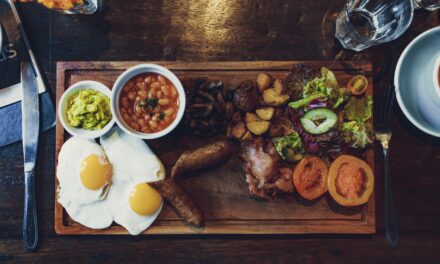Role of Protein During Pregnancy
“Protein is vital for fundamental bodily functions such as muscle growth, wound healing, and cell signaling. During pregnancy, it becomes even more crucial as this macronutrient serves as an essential energy source, repairing and supporting changes in the Mom’s brain, muscles, and blood. Ensuring the right protein intake is not just for mom but also fuels the growth of the little one.”
Although protein is necessary at all times, it becomes even more important during pregnancy. Here is a daily requirement for protein for expectant mothers.
how protein works when you are pregnant
- Tissue Growth and Repair: Promoting the growth and repair of injured and newly formed tissues.
- Supporting the Immune System: Producing antibodies to strengthen the infant’s defenses.
- Essential Hormone and Enzyme Synthesis: An important function of hormone and enzyme synthesis.
- Oxygen Transport: Managing the baby’s bloodstream’s effective oxygen transportation.
- Promoting Healthy Birth Weight: Ensuring the recommended protein intake to foster a birth weight that reduces the risk of diabetes and future overweight concerns.
How much protein is necessary for expectant mothers?
Determining the right amount of protein during pregnancy is key. Pregnant women typically require an increased intake to support the growing needs of both themselves and their developing babies. While individual requirements may vary, a general guideline suggests around 75 to 100 grams of protein daily. Ensuring this adequate protein supply contributes significantly to the well-being of both the expecting mother and the healthy development of the baby.
Importance of Protein Intake for Lactation Women
Mothers who are nursing their babies also need to eat a balanced diet. Moms should aim to consume an additional 200 calories per day during this time and stick to a balanced diet similar to what they consumed during their pregnancies. Making sure that these extra calories come from healthful, nutrient-dense foods is crucial.
Remarkably, consistent nursing naturally results in a monthly weight loss of 1 to 4 pounds without the necessity for severe calorie restriction. This highlights how responsive the body is after giving birth. Breastfeeding moms must prioritize their protein intake in addition to maintaining a balanced diet. Getting enough protein is important for the mother’s health as well as the baby’s growth since it supports the ideal development of the latter.
How protein works when you Lactation Woman
- Milk Production: Protein is a key component in the synthesis of breast milk, ensuring its nutritional richness for the baby.
- Tissue Repair: Breastfeeding can lead to wear and tear on the body. Protein aids in the repair of tissues, promoting postpartum recovery.
- Muscle Maintenance: Protein is crucial for maintaining muscle mass, providing the necessary energy for daily activities, and caring for the baby.
- Immune System Support: Protein contributes to the production of antibodies, enhancing the mother’s immune system to protect against illnesses.
- Energy Source: Protein serves as a sustainable energy source, helping breastfeeding mothers meet the increased energy demands during lactation.
How Much Protein is Necessary for Lactation Woman
Getting enough protein is crucial for breastfeeding moms, as it plays a vital role in supporting both their health and the nutritional needs of their babies. While the specific protein requirements can vary based on factors like age, weight, and activity level, a general rule suggests that lactating women should aim for an extra 25 grams of protein per day compared to before pregnancy. This extra intake ensures there are enough amino acids for producing breast milk, keeps the mother healthy, and meets the higher energy demands of breastfeeding.
Source of Protein
| Food Category | Protein Content (per 100g) | Protein Content (per ounce) | Serving Size (grams) | Total Calories (per 100g) |
| Lean Meat (Chicken) | 31g | 0.88g | 100 | 165 |
| Fish (Salmon) | 25g | 0.71g | 100 | 206 |
| Eggs | 13g | 0.37g | 50 | 143 |
| Dairy (Greek Yogurt) | 10g | 0.28g | 100 | 59 |
| Legumes (Lentils) | 9g | 0.26g | 100 | 116 |
| Nuts (Almonds) | 21g | 0.60g | 28 | 576 |
| Seeds (Chia Seeds) | 16g | 0.45g | 28 | 486 |
| Tofu | 8g | 0.23g | 100 | 144 |
| Quinoa | 4g | 0.11g | 185 | 120 |
| Cottage Cheese | 11g | 0.31g | 100 | 98 |
Conclusion
Protein acts as an essential partner during pregnancy as well as breastfeeding because it is necessary for immune system support, tissue growth, hormone synthesis, and muscle function. A daily protein intake of 75 to 100 grams is beneficial for expectant moms and ensures the health of the mother and the unborn child.
During breastfeeding, an extra 25 grams of daily protein proves crucial for sustaining muscle strength, repairing tissue, enhancing immunity, and providing a steady energy source. One significant benefit for nursing moms is the weight loss that occurs naturally without the need for severe caloric restriction, demonstrating the body’s strength after childbirth.
In this story, protein becomes more than just nutrition; it becomes an important supporter, a force that molds and maintains life during the amazing journey that is motherhood. Let’s understand the significant role that protein plays during the lovely stages of nursing and pregnancy.













Recent Comments